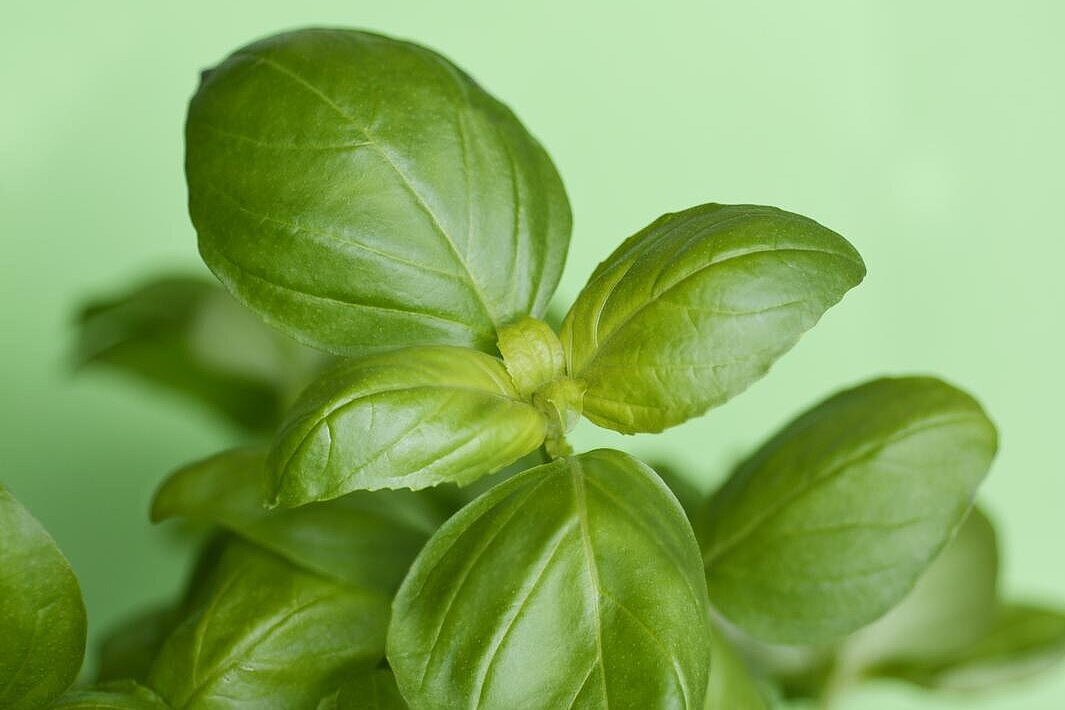Indian basil

Indian basil, also known as tulsi, has a special place in the world of herbs and spices. It has been valued for thousands of years in Ayurvedic medicine for its healing properties. But what about the use of this miracle herb in our dogs' diet? This article takes an in-depth look at Indian basil, discusses its benefits and potential drawbacks, and offers insights into whether and how it could be part of your dog's diet.
What is Indian basil?
Indian basil (Ocimum sanctum), also known as tulsi, is a plant native to India that plays a central role in traditional Ayurvedic medicine. It is said to have a variety of health-promoting properties, including antioxidant, antibacterial and anti-inflammatory effects. The plant is not only known for its medicinal benefits, but also for its spiritual significance in Hindu culture.
Tulsi for animals: blessing or worry?
Incorporating Indian basil into your dog's diet can offer several benefits, but there are also potential drawbacks to consider.
Benefits
- Immune system support: Due to its antioxidant properties, Indian basil can boost your dog's immune system, helping to prevent illness.
- Natural anti-inflammation: Tulsi can naturally reduce inflammation in your dog's body, which can be particularly beneficial for dogs with arthritis or skin conditions.
- Stress reduction: Indian basil is said to have an adaptogenic effect, which can help reduce stress and anxiety in dogs.
- Promoting oral health: The antibacterial properties of tulsis can help to keep the mouth healthy and combat bad breath.
Disadvantages
- Risk of gastrointestinal discomfort: As with the introduction of any new ingredient into the diet, tulsi can cause gastrointestinal distress in some dogs, especially in large quantities.
- Potential interactions: Indian basil can interact with certain medications. So if your dog is on medication, you should consult with a veterinarian before introducing Tulsi.
- Hypersensitivities: Although rare, some dogs can have allergic reactions to tulsi. Watch your dog closely when giving him Indian basil for the first time.
Indian basil can be a valuable addition to your dog's diet, provided it is used responsibly and in moderation. The potential health benefits, from boosting the immune system to reducing stress, make Tulsi an interesting candidate for your four-legged friend's natural health boost. However, as with any supplement to your dog's diet, it is important to exercise caution and seek professional advice if you are unsure. Start with small amounts and observe how your dog reacts to it to ensure that Tulsi is doing them good and promoting their health and well-being.
If you notice any signs of hypersensitivity or poisoning in your dog, you should see your vet immediately. We are not a substitute for a vet, but we try to be as accurate as possible. Every dog reacts differently and we recommend you get a second opinion or consult your vet if in doubt.
Stay healthy and take good care of your four-legged friend!😊
Similar to Indian basil
Basil is a green herb that belongs to the labiate family. There are many different varieties of basil, including the classic Genovese basil and the sweet basil. This herbal ingredient has a...
Thai basil, also known as Ocimum basilicum var. thyrsiflora, is distinguished from other basil varieties by its narrow leaves, purple stems and unique aniseed-liqueur aroma. It contains a variety of...
Lime basil is a variety of basil that is known for its intense lemon flavor, which comes from its high lime content. This herb is often used in cooking to add a fresh, citrusy flavor to dishes. But...
Oregano is a herbaceous plant from the labiate family. It is native to Europe, the Mediterranean region and parts of Asia. Oregano is often used as a spice in cooking and is known for its strong...



